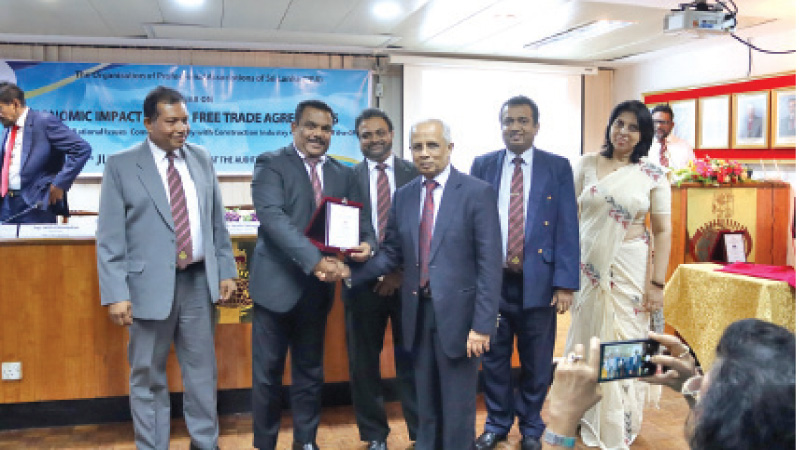While Free Trade Agreements (FTAs) offered many advantages to Sri Lanka, the country’s economy needed to become more export-oriented to fully enjoy these benefits, said Chief Negotiator of the Office of International Trade, K. J. Weerasinghe.
He was addressing a seminar on the “Economic Impact of Free Trade Agreements” conducted by the Organisation of Professional Associations recently.
Outlining the vision of the Government on FTAs,
Weerasinghe said that the main aim is to integrate with the largest economies in Asia for export diversification and increased investment.
He said that the main pillars of Sri Lanka’s trade relations were South Asia, USA and EU, and RCEP countries of East Asia and added that FTAs were vital for Sri Lanka as sustained economic recovery required increased exports of goods and services as well as more FDIs.
Given our small internal market, FTAs would enable Sri Lanka to attract investment at scale while stimulating productivity.
Weerasinghe said that Sri Lanka had signed four FTAs. Apart from those with India and Pakistan, FTAs with Singapore and Thailand had been signed recently. The economic and Technology Cooperation Agreement (ETCA) with India and the China-Sri Lanka FTA were being negotiated, while FTAs with Malaysia, Vietnam and RCEP were proposed.
They were also negotiating PTAs with Bangladesh and Indonesia. The Government was seeking an FTA with UK, which is our most important market for garments.
Weerasinghe said that an overarching goal of the Government was to eventually join the Regional Comprehensive Economic Partnership (RCEP), which was a free trade agreement among Asia-Pacific countries, including ASEAN.
Gunawardana said that after the India-Sri Lanka FTA came into effect in 2000, Indian imports had increased sharply, reaching $4.6 billion in 2022. However, there was no similar increase in Sri Lanka’s exports to India.
He attributed this to the presence of non-tariff barriers such as stringent quality standards, customs procedures, and other regulatory measures. He said that the effectiveness of FTAs can be undermined by the lack of complementary national policies. Sri Lanka’s enterprises were hampered by limitations in technology, finance and expertise, as well as inefficient logistics, poor infrastructure and excessively dependence on primary and low-value-added exports. “Attracting substantial foreign investments were difficult owing to our small market size and high costs.”
There was also a mismatch between FTA benefits and the competitive strengths of our industries. Gunawardana called for a multifaceted approach to address these issues.








